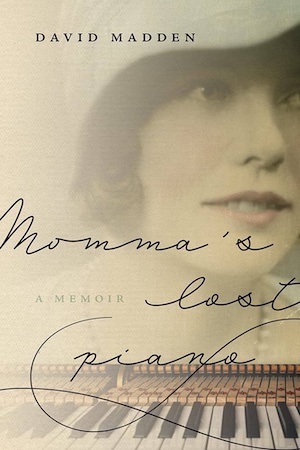By Alexander Junxiang Chen
Emily Merritt was ecstatic.
Having just turned 17, the young Emily is gifted by her father a brand new piano. But before Emily could play anything more than “Claire de Lune” on the majestic instrument, her “Daddy” comes home with heartbreaking news: fired from his job, he would have to take the whole family back to Knoxville, Tennessee—a hometown that, in the words of Emily’s son and author David “Jerry” Madden a century later, she could never love.
Madden takes the reader to a Middle America forever changed by the “war”—that destination to which half of Knoxville’s sons had bravely departed, including Emily’s brother Private Charles “Chuck” Merritt, to fight the forces of Hitler and Mussolini, and from which many, including Chuck, would never return. The Knoxville that Madden describes, to the best of his recollection more than 90 years later, is not only the Knoxville that defined his childhood but also the Knoxville that stole away his mother’s.
Through an innovative style that eschews the traditional chronological pattern of a memoir in favor of sharing reflections as they impinge on his memories, Madden is able to show, instead of tell, the reader all the trials and tribulations, as well as the still occasional joys and merriments, that his family faces in their new Tennessee home.
Madden especially excels in the dialogue with which he adorns characters big and small, young and old, vividly recalled and faintly remembered. Fast-paced but never outrunning the reader’s ability to comprehend, the conversations that Madden conjures seem as real as the people who carry them out. Indeed, especially for readers who may themselves possess fond reminiscences of their youthful days in the early and middle decades of the previous century, Madden’s ability to precisely capture the nuances of period speech and culture will surely ring a nostalgic bell.
But, don’t let the non-linear style of storytelling that Madden adopts deceive you into thinking that his tales aren’t headed anywhere. Readers advancing through the single-page vignettes that Madden serves, “Jerry Searches for the Meaning of Life,” “That Woman Across the Street Stole Her Dress,” “Charm Gets Her Jobs, Temper Gets Her Fired”—all cleverly and allusively titled, will soon find themselves a first-hand witness to the tremendous changes that befall each of Emily’s sons, such as the tragic life of a desperado that ends up consuming Dickie, the oldest brother.
Momma’s Lost Piano is Madden’s first foray into memoir, but it arrives at the tail end of an impressively storied career. Over the span of more than six decades, Madden has published a total of eighteen works of fiction. His writing has been supplemented by a distinguished academic career that has included stints as a John Golden Fellow at the Yale School of Drama and a writer-in-residence at Louisiana State University. He is now Professor Emeritus of Creative Writing at LSU, but as his latest work more than sufficiently demonstrates, his days as a culturally and aesthetically thought-provoking author are far from over.
Alexander Junxiang Chen is a senior at Harvard University who is pursuing a double concentration in neuroscience and chemistry. He was inducted into the Alpha Iota of Massachusetts chapter of Phi Beta Kappa in April 2023.




